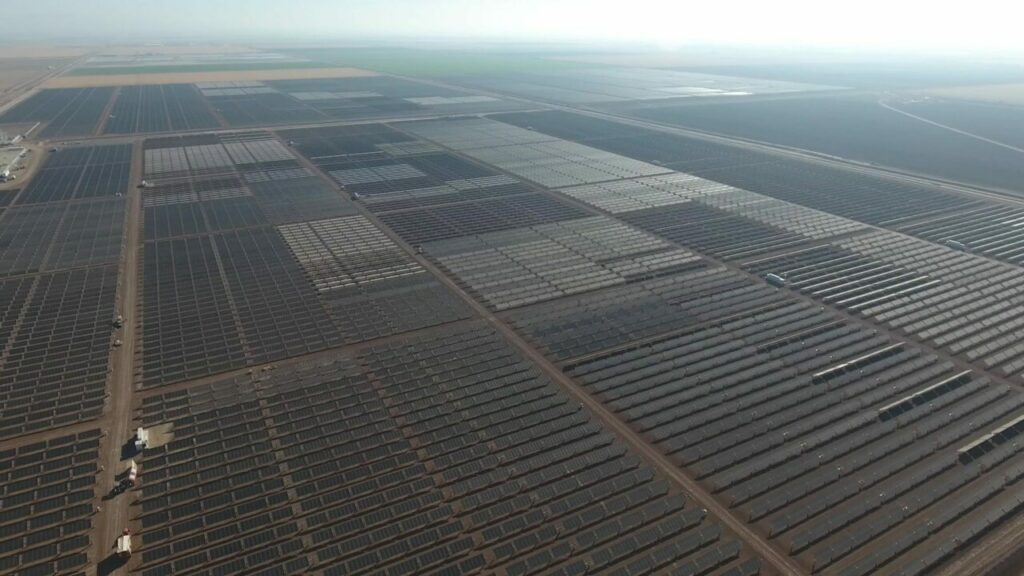
California Community Choice Aggregator (CCA) Sonoma Clean Power has signed a deal for the output of a large-scale solar-plus-storage plant, while another CCA has launched a Request for Offers (RFP).
CCAs are essentially utilities that offer customers a choice of where their power comes from, while allowing them to continue using the transmission and distribution (T&D) infrastructure of large investor-owned utilities (IOUs).
Enjoy 12 months of exclusive analysis
- Regular insight and analysis of the industry’s biggest developments
- In-depth interviews with the industry’s leading figures
- Annual digital subscription to the PV Tech Power journal
- Discounts on Solar Media’s portfolio of events, in-person and virtual
The non-profit CCA pays the IOUs on the customer’s behalf for electricity delivery, while the CCA takes responsibility for the electricity generation.
According to the California Community Choice Association, which represents the groups, around 11 million people in the state are served by 25 different CCAs.
Many that sign up with CCAs often choose them because they pledge to supply higher shares of low-carbon energy and as regular readers of Energy-Storage.news will know, several CCAs have become prolific adopters of renewables and latterly energy storage.
Classified as load-serving entities under California energy market rules, CCAs need to provide resource adequacy (RA) to the CAISO grid, which means that, like IOUs, they need to procure storage resources with at least 4-hour duration. Some CCAs have gone further and begun contracting for long-duration energy storage (LDES), including 8-hour duration lithium batteries, and vanadium redox flow battery projects.
Sonoma Clean Power’s latest deal is with Idemitsu Renewables, the US solar and energy storage developer-power producer subsidiary of Japanese conglomerate Idemitsu Kosan.
The pair have signed a long-term power purchase agreement (PPA) for Idemitsu’s 84MWp solar PV, 38MW/152MWh Azalea project in California’s Kern County, home to many of the state’s solar farms as well as many of its fossil fuel extraction sites.
Azalea is expected to go into commercial operation during 2025 and will serve Sonoma Clean Power’s customers, who are in Mendocino and Sonoma Counties.
Sonoma Clean Power claims its electricity is roughly the same price as IOU Pacific Gas & Electric (PG&E), but is much cleaner: in 2020, PG&E’s power mix was 31% renewable, versus 49% renewable power sold by Sonoma Clean Power. The CCA is in PG&E’s service area.
In June last year, Energy-Storage.news reported as Sonoma Clean Power signed a PPA for an 11.6MW solar PV plant with a 8MW/32MWh battery energy storage system (BESS), with financing company Luminia, located within Sonoma County. Alongside solar, its other low-carbon resources include geothermal energy.
CPA launches multi-source procurement RFO
Sonoma Clean Power is also among CCAs exploring options in long-duration energy storage (LDES). Another is Clean Power Alliance (CPA), which recently contracted an offtake deal with NextEra for an 8-hour duration lithium-ion battery storage system and has regularly featured on this site for various solar-plus-storage and standalone energy storage procurements.
Clean Power Alliance this month launched a Request for Offers (RFO) seeking large-scale energy resources including renewables, energy storage and dispatchable thermal energy.
The RFO opened on 9 June and submissions are due by 19 July, with shortlisted entrants notified in mid-to-late September this year, and contracts to be negotiated from then until January 2024.
CPA has hired energy consulting firm Ascend Analytics to administer the RFO process. Resources in five product categories are being sought, with most stipulating a project size of at least 5MW and up to 500MW each.
They include:
Renewable generation-only contracts
Renewable generation-plus-storage
Standalone energy storage
Resource adequacy-only contracts
Dispatchable thermal generation with RA contracts, including gas-fired projects using green hydrogen or renewable biogas blend
Energy storage resources in the applicable categories have to be 4-hour duration, and in the case of storage paired with renewables, capacity must not exceed 100% of the nameplate generation capacity. Contracts with the CCA for the first three categories will be for 10 to 20 year terms, while the latter two have shorter terms.
Read more of Energy-Storage.news’ coverage of the Community Choice Aggregator space.






